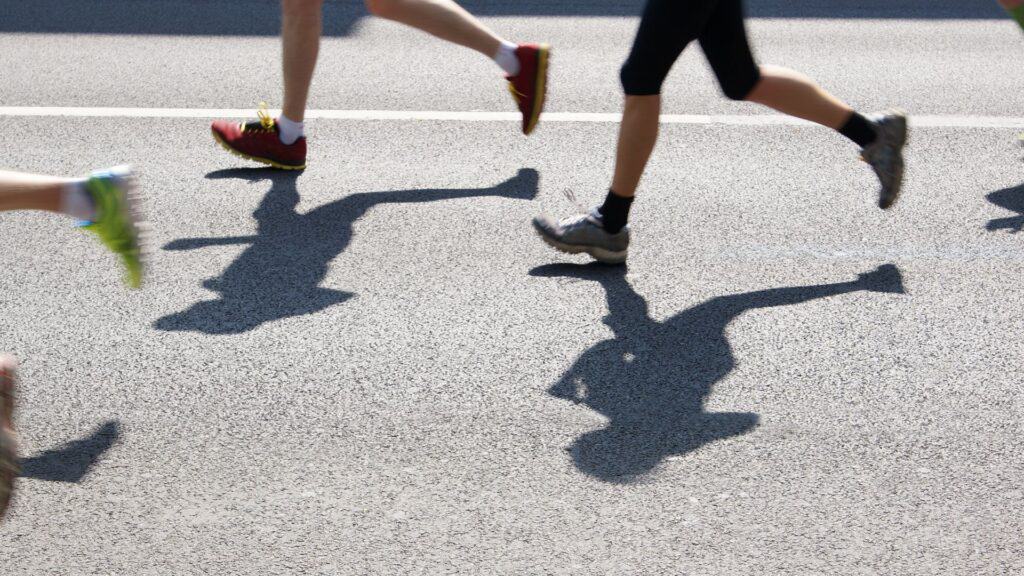The Soweto Marathon is one of the most popular marathons in South Africa, taking place in the historic township of Soweto. With its vibrant culture and community, it provides an unforgettable marathon experience.
This prestigious long-distance running event includes a full marathon, a 21.1 km (13.1 miles), and a 10 km (6.2 miles) race. The marathon is famous for its beautiful route through the lively streets of Soweto, giving runners a chance to enjoy the unique culture and history of the township.
If you are a keen runner and want to participate in this event, you need to know everything about it. In this blog, we will guide you on how to enter the Soweto Marathon, its dates, and all related costs.
Let’s dive in…

How To Enter The Soweto Marathon?
To participate in the Soweto Marathon, you need to register through the official Soweto Marathon website.
Keep in mind that registration for the marathon often opens several months before the event and closes as soon as the entry cap has been reached.
It’s crucial to register early, as entries may be limited, and the event tends to attract a large number of participants.
Make sure to provide all the necessary personal details and any additional information required during the registration process.
When Does The Soweto Marathon Take Place
The Soweto Marathon takes place annually in early November, usually on the first or second Sunday of the month.
It is advisable to arrive at the venue early to avoid the crowds and to familiarize yourself with the location.
Parking is a nightmare; there is plenty of it, but few access points and entrances get gridlocked. Make sure you arrive well before the start of the race.
The starting point for the marathon is at the iconic FNB Stadium, which is a significant landmark in Soweto. The race takes you through the streets of Soweto, where you can witness the vibrant township culture and community.
How Much Does It Cost To Enter The Soweto Marathon
The cost of the Soweto Marathon varies depending on the category you choose to participate in.
- Soweto Marathon: R380- R420
- Half-Marathon: R300- R340
- 10km (6.2 miles) Race: R280- R310
The costs can also differ for South African residents and international participants. Additionally, some packages may include race merchandise or other perks.
Please note that these fees are subject to change, and it is advisable to check the official website for the latest entry fees. All entry fees are non-refundable

Who Is Allowed To Participate?
Age Restrictions:
- 42.2km/26.2 miles: Athletes must be 20 years or older on race day.
- 21.1km/13.1 miles: Athletes must be 16 years or older on race day.
- 10km/6.2 miles: Athletes must be 15 years or older on race day.
For International Athletes:
- You need a clearance letter from your home country and must follow World Athletics rules 4.2 and 142.2 and ASA rule 9.
- International athletes cannot run with an ASA provincial license and must get a temporary license; otherwise, they might get disqualified.
- You cannot run in local club colors unless the club exists in your home country, you have a refugee status permit, or are a naturalized citizen of RSA.
To complete a marathon, you need to prepare yourself physically and mentally, and training for a marathon takes time and dedication. So…
When Should You Start Training For The Soweto Marathon
Getting ready for the Soweto Marathon involves more than just running. It’s a well-rounded approach that includes various important elements, each contributing to your preparation.
For the best preparation for the Soweto Marathon, it’s ideal to start your training about 16 to 20 weeks before race day.
This allows you to gradually build your stamina and be at your best when it counts.
In the initial phase, lasting approximately 4 to 8 weeks, focus on establishing a strong base. This means regular running to get your body in shape and establish a routine.
By slowly increasing your running distance and incorporating regular workouts, you’ll set the stage for more intense training down the line.
Once you’ve laid a solid foundation, it’s time to step up your game. Around 12 weeks before race day, usually in mid-August, you can begin your official Soweto Marathon training plan.
This phase involves specific workouts aimed at improving your speed, endurance, and overall performance on race day.
Grab your Soweto Marathon Training Plan Here!
Now, let’s take a quick look at what a Soweto Marathon training plan would entail.
Strength Training
Strength training is a vital part of a runner’s routine for injury prevention and performance enhancement.
One of its standout benefits is reducing the risk of injuries. When smaller muscle groups aren’t functioning correctly, larger muscles take over, leading to misaligned movement patterns and potential injuries.
Additionally, strength training can boost a runner’s efficiency by 4%–6%, depending on their experience and the type and frequency of strength training.
This means you can cover more ground with less effort, delaying the onset of fatigue.
To include strength training in your routine, aim for 2 to 3 sessions per week. While it may seem challenging to find time for it, it’s essential for injury prevention and improved performance.
Balancing strength training with running training, a concept called periodization is also crucial. It involves setting the right foundation and complementing your overall training plan.
Making sure you do the correct strength training is important. The good news is we’ve created a free strength training plan for runners that you can download by clicking here.
Cross Training
Given that running primarily involves high-impact actions that strain our muscles, cross-training allows us to engage in activities that benefit our cardiovascular system and stimulate our muscles without subjecting them to the high impact of running.
In preparation for the Soweto Marathon, cross-training diversifies your routines and reduces the impact on your body.
Consider incorporating these top cross-training options into your routine:
- Swimming
- Cycling
- Elliptical training
- Rowing
- Yoga

Long Runs
Long runs serve several important purposes in your training plan, with the main goal being to enhance endurance and provide sustained energy to your muscles over extended periods.
These runs are vital for preparing your body to endure the challenges of a marathon distance.
Along with building endurance, long runs also have a significant role in improving your running efficiency.
Spending more time on your feet during these runs helps your body develop the necessary muscle strength, neuromuscular coordination, and cardiovascular fitness to maintain a smooth and efficient running pace.
As a result, you’ll be able to run more comfortably, leading to improved performance on race day.
Another benefit of long runs is the opportunity they offer to experiment with nutrition strategies.
Since these runs replicate the duration and intensity of a marathon, it’s the perfect time to test various approaches to fueling and hydration.
By trying out different nutrition options, you can determine what works best for you and fine-tune your race-day nutrition plan accordingly.
Check out our video This Is Why You Need To Include Long Runs In Your Training.
Tapering
Tapering is the practice of reducing training volume before a significant competition.
Although it might induce some anxiety about cutting back on training, tapering is one of the most crucial aspects of Soweto Marathon preparation.
The primary objective of tapering is to allow your body to recover from training while maintaining some level of training stimulus to optimize your strength for race day.
Reducing the number of miles is a key component of the taper, ensuring that you’re at your best come race day.
Nutrition
A well-balanced diet is crucial for optimal performance during marathon training.
Make sure to include a variety of whole grains, fruits, vegetables, and protein, along with adequate amounts of essential micro and macronutrients.
If you find yourself feeling fatigued and struggling to stay awake after your morning workouts, it might be a sign that your post-workout nutrition needs some adjustments.
While training naturally leads to fatigue, improving your nutritional intake can significantly help alleviate some of the weariness you may experience.
Easy Runs
The key to easy runs is to maintain a relaxed and easygoing pace. It’s crucial to understand that “easy” truly means taking it easy.
These jogs shouldn’t leave you breathless or struggling for air. Instead, they should allow you to comfortably chat with a running partner.
Easy runs play a vital role in any training regimen as they primarily help develop the aerobic system. This system is essential in providing energy to your muscles during moderate efforts.
By integrating easy runs into your routine, you provide your body with the chance to adjust, recover, and strengthen your muscles, tendons, and ligaments, all while enhancing your energy metabolism.
During these runs, it’s important to maintain a suitable intensity that both challenges your aerobic capacity and allows enough time for recuperation before your next demanding workout.
Easy runs also offer mental and emotional benefits. They offer a break from more intense training, allowing you to savor the simple joy of running while promoting relaxation and stress relief.
These runs can be an opportunity to clear your mind, enjoy nature, or revel in the camaraderie of running alongside others.
Remember, the aim of easy runs isn’t to push yourself to the limit or break personal records. Instead, focus on maintaining a steady effort and embracing the recovery and adaptation processes that occur during these relaxed runs.
Recovery Time
Rest days play a vital role in any training program, yet they are often overlooked by many runners.
It’s essential to recognize that prioritizing proper recovery is necessary to fully benefit from our training. During rest days, our bodies get the chance to adapt and progress based on our completed training sessions.
Without adequate recovery, we might miss out on the full benefits of our training efforts.
Giving yourself the time to recover after your runs enables you to return stronger and better prepared for your next run.
Related: A Practical Guide To Running Recovery
Where To Stay If You’re Running The Soweto Marathon
Here are some excellent lodging options near the Soweto Marathon route to consider for your stay:
- Premier Lifestyle Guesthouse (Good Value): A short 4-minute ride from the route, this guesthouse offers a range of amenities, including a bar, private parking, and spa facilities.
- Gold Reef City Hotel (Top Rated): A 4-star hotel located 4.5 km (2.8 miles) to the east of FNB Stadium, boasting a restaurant, bar, and even a casino, along with a host of additional services.
- Semeni Asante Hotel (Affordable): This 4-star hotel is situated in the heart of Johannesburg, offering a garden, an on-site restaurant, and comfortable rooms with lovely city views from some balconies.
- Ecotel Southgate (Good Value): This hotel located in the Southgate area offers a seasonal outdoor swimming pool, a garden, and comfortable rooms with mountain views from some balconies.
- SUN1 Southgate (Affordable): A budget-friendly option situated just 2 km (1.2 miles) from Nasrec and 3 km (1.8 miles) from FNB Stadium, offering simple and comfortable rooms along with free private parking.
- Palm Continental Hotel (Good Value): Located about 4.7 km (2.9 miles) northeast of FNB Stadium, this hotel provides an indoor, heated pool, an onsite restaurant, and various other facilities such as a spa and fitness center.
Each of these accommodations offers its own unique set of benefits, ensuring a pleasant and convenient stay for the Soweto Marathon.
Things To Remember On Race Day
On race day, it is essential to remember some key things.
Plan your travel route and arrive at the starting line with plenty of time to spare. This will provide you with the opportunity to get yourself mentally and physically ready for the race.
If you are using the accommodation close to the start, arrange a drop-off to make the morning less stressful.
Avoid the temptation of using new equipment or unfamiliar nutrition on race day, especially if you haven’t tested them in your training.
Race day is not the right moment for experimenting with new gear or dietary choices. Stick to the tried and trusted equipment and foods that you’ve used throughout your training.
The Soweto Marathon offers an incredible running experience for people of all ages and fitness levels. By following this guide, you will have all the information you need to enter the marathon, including its dates and costs.
Remember to start training early, stay hydrated on race day, and enjoy the incredible marathon experience in the heart of Soweto.
This article may contain affiliate links, which means we may earn affiliate income if you make a purchase through these links. This comes at no additional cost to you and helps support the content we provide. We only recommend products or services that we believe offer value to our readers. Your support through these affiliate links is greatly appreciated and allows us to continue delivering valuable information.



Comments are closed.